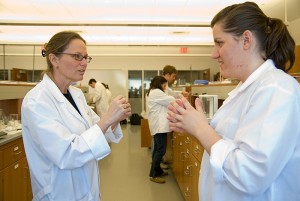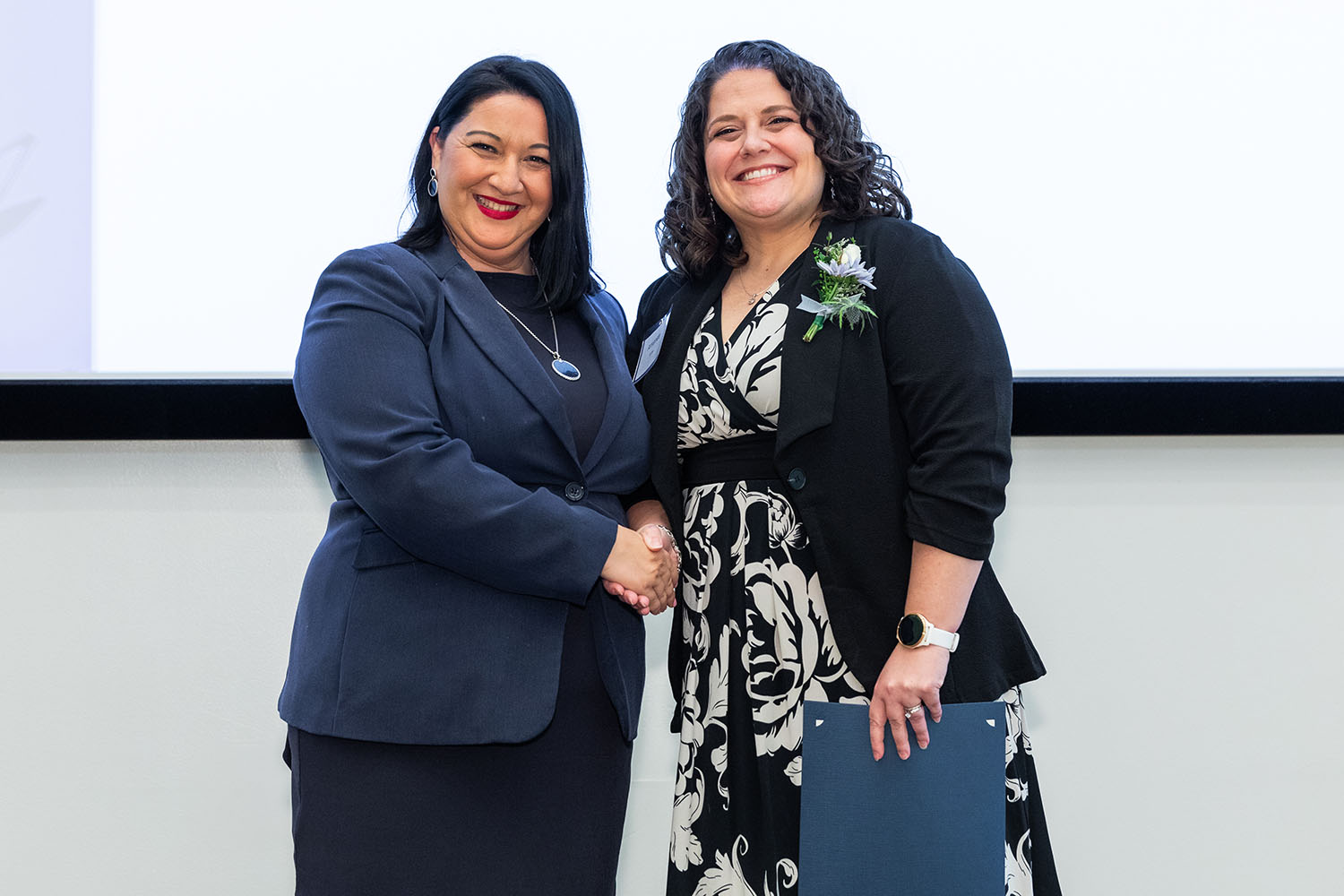
Robin Bogner wasn’t planning a career in academics.
“I thought I’d climb the corporate ladder in the pharmaceutics industry,” says Bogner, an associate professor of pharmaceutical sciences.
As an undergraduate, she had worked for four summers at Johnson & Johnson, and her heart was set on becoming an industrial leader. Once she got to graduate school at the University of Iowa, however, something happened.
“They made me a teaching assistant,” she says, “and I was derailed. A student in a lab was struggling with a question and I explained to him how to answer it. When he said, ‘Oh, I see,’ I was hooked. There was no better feeling in the world. I went into pharmacy to help people, and I realized I could do that by teaching.”
Bogner, who joined the UConn faculty in 1989, was named a 2008 University of Connecticut Teaching Fellow. She has taught many courses, including solution and solid dosage forms of drugs, compounding, and special topics in clinical rotations.
Each student brings his or her own talent, motivation, and experience to the classroom, says Bogner, who was also named 2007 School of Pharmacy Teacher of the Year.
“That’s a challenge, particularly in classes with 100 students, because you only have one voice to talk to them all. You can’t engage students with a one-way conversation and expect learning to occur, so I use different strategies to effect learning.”
She does that by explaining each concept students need to learn in different ways. That includes discussion, schematics or graphs, and mathematics.
“It works better,” she says. Sometimes she illustrates points by using items from her “bag of tricks.”
Bogner pulls out a large bag of three-inch, clear plastic horse capsules. “It would be hard to explain to students how large this really is,” she says. “So I show them instead.”
During one class, students test placebo tablets to experience how they dissolve in the mouth. “As pharmacists, the students are going to have to dispense these newer dosage forms and they need to experience how fast the tablets actually dissolve.”
Bogner says during long lectures in large classes to keep students engaged, she periodically asks them questions. She has each student’s name on 3” x 5” cards. At the start of the class she shuffles the cards and asks a student to cut the deck.
The person whose name is on the top of the deck must answer the question, and may consult with the students around him or her. “It becomes a team effort and keeps the students awake and challenged,” she says.
Bogner says it’s important for her to “hold students to the highest expectations possible without causing undue stress. I believe real learning takes a bit of a struggle on the part of the student, and ends with great satisfaction.”
Lauren Aleksunes, a former student, says Bogner’s lecture style was “particularly effective in conveying pertinent information and assisting students in digesting the large amount of material in the field.”
She says Bogner’s commitment to her current and former students is “outstanding and inspiring” to young scientists who plan to enter academic research as a career: “She is always available for consultation and advice regardless of all of her responsibilities.”
Alison Smith, another former student, describes Bogner as “passionate” and “enthusiastic” with the highest expectations of her students: “She’s the type of person who makes you want to succeed.”
Former student Michael Lettmoden says, “Professor Bogner is a consummate teaching professional. Her teaching style sets her far apart from instructors or trainers; she strives to teach her students not what to think, but how to develop their own thinking style.”
What does Bogner enjoy about teaching? It keeps her learning, which in turn, makes her a better teacher, she says: “Every time I teach something, I get a better understanding of it. That’s important, because I owe my students the best explanation I can offer.”
She says she hopes that when her students complete her courses, they are able to access what they’ve learned when working in the field.
“I’ve taught them what they need to know – they have the information, but I want them to be motivated to go back in their brains and access that knowledge when they need it and figure out how it addresses a particular problem,” says Bogner.
“They have to be willing to use the knowledge, take a risk, and try to find a solution.”


